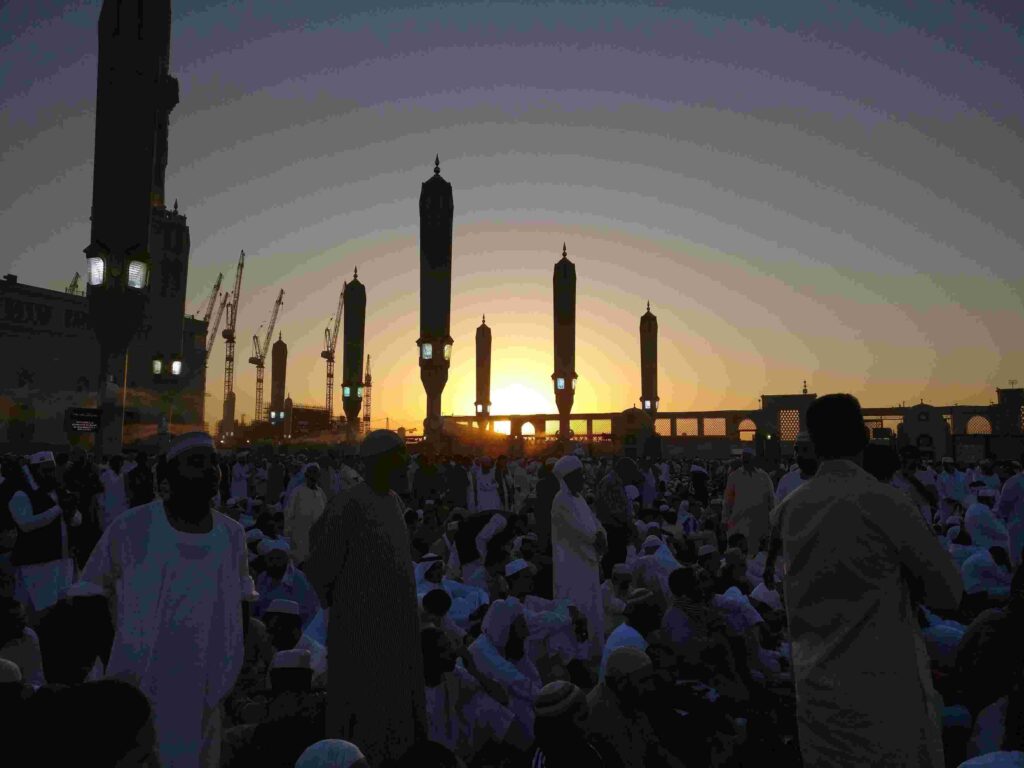Eid-ul-Fitr, often referred to simply as Eid, is one of the most significant and joyous festivals celebrated by Muslims worldwide. This religious holiday marks the end of Ramadan, the holy month of fasting and spiritual reflection. Eid-ul-Fitr, which translates to “Festival of Breaking the Fast,” is a time of communal prayers, feasting, acts of charity, and the exchange of gifts. It is a momentous occasion that holds deep religious and cultural significance for Muslims and is characterized by its festive atmosphere and expressions of gratitude to Allah. In this article, we will explore the history, customs, and traditions associated with Eid-ul-Fitr, providing a comprehensive understanding of this cherished holiday.

Historical Origins
The Religious Significance of Eid-ul-Fitr
Eid-ul-Fitr, known as the “Festival of Breaking the Fast,” holds immense religious importance for Muslims worldwide. This section traces the historical origins of Eid-ul-Fitr and its connection to the holy month of Ramadan. It sheds light on the spiritual significance of the festival and its role in the lives of Muslims.
Dates and Observance
The Lunar Calendar and Eid-ul-Fitr
Eid-ul-Fitr’s observance is determined by the Islamic lunar calendar, making its date vary each year. This section explains the intricacies of how Eid’s date is determined and highlights the importance of moon sightings in signaling the festival’s commencement.
Preparation and Anticipation
The Excitement Leading to Eid
The days leading up to Eid-ul-Fitr are filled with excitement and anticipation. This part of the article explores how Muslims prepare for the festival, from cleaning and decorating homes to shopping for new clothes and gifts. It also touches on the significance of the pre-Eid fast, known as “Roza.”
Spiritual Reflection
The Essence of Ramadan and Eid-ul-Fitr
Eid-ul-Fitr is not just about feasting and celebrations; it’s also a time for deep spiritual reflection. This section discusses the role of Ramadan in preparing Muslims for Eid-ul-Fitr and how the fasting month fosters a sense of discipline, empathy, and gratitude.
The Dawn of Eid
The Prayer of Eid and Its Significance
Eid-ul-Fitr begins with a special prayer, known as “Salat-ul-Eid,” which is performed at the mosque or an open prayer ground. This section explores the importance of this prayer and the collective nature of the Eid congregation. It also discusses the specific takbirs (declarations) made during the prayer.
Traditions and Customs
Eid-ul-Fitr Traditions Around the World
Eid-ul-Fitr is celebrated with unique traditions and customs in different parts of the world. This part of the article takes readers on a global journey, highlighting diverse Eid customs, such as giving gifts (Eidi), visiting friends and family, and charitable acts like giving to the less fortunate (Zakat al-Fitr).
Culinary Delights
Eid-ul-Fitr Feasts and Special Dishes
Food plays a central role in Eid-ul-Fitr celebrations. This section explores the mouthwatering culinary delights prepared for the festival, including traditional dishes like biryani, kebabs, and sweets like sheer khurma. It also touches on the significance of communal feasting and hospitality.
Festival of Giving
Charity and Community Service on Eid-ul-Fitr
Eid-ul-Fitr emphasizes the importance of charity and community service. This part of the article discusses the practice of giving to those in need, both locally and globally, during the festival. It also sheds light on the concept of Zakat al-Fitr and how it benefits the less fortunate.
Eid-ul-Fitr in the Modern World
Contemporary Celebrations and Challenges
Eid-ul-Fitr has evolved with time, adapting to the changing lifestyles of Muslims worldwide. This section explores how technology and modernity have influenced Eid celebrations, including the use of social media and virtual gatherings. It also addresses some of the challenges faced by Muslims in celebrating Eid in today’s world.
Conclusion
Unity in Diversity: The Message of Eid-ul-Fitr
In conclusion, Eid-ul-Fitr is more than just a religious festival; it’s a celebration of faith, culture, and unity. This article has explored the festival’s historical origins, its religious significance, and the diverse traditions that make it a truly global celebration. Eid-ul-Fitr serves as a reminder of the values of compassion, generosity, and community, offering a message of hope and unity for people of all backgrounds. As Muslims around the world come together to celebrate this joyous occasion, they reinforce the timeless message of Eid-ul-Fitr: to break barriers, embrace diversity, and foster harmony among all.
For further festival discoveries, you can simply click on the link provided. worldwide festivals